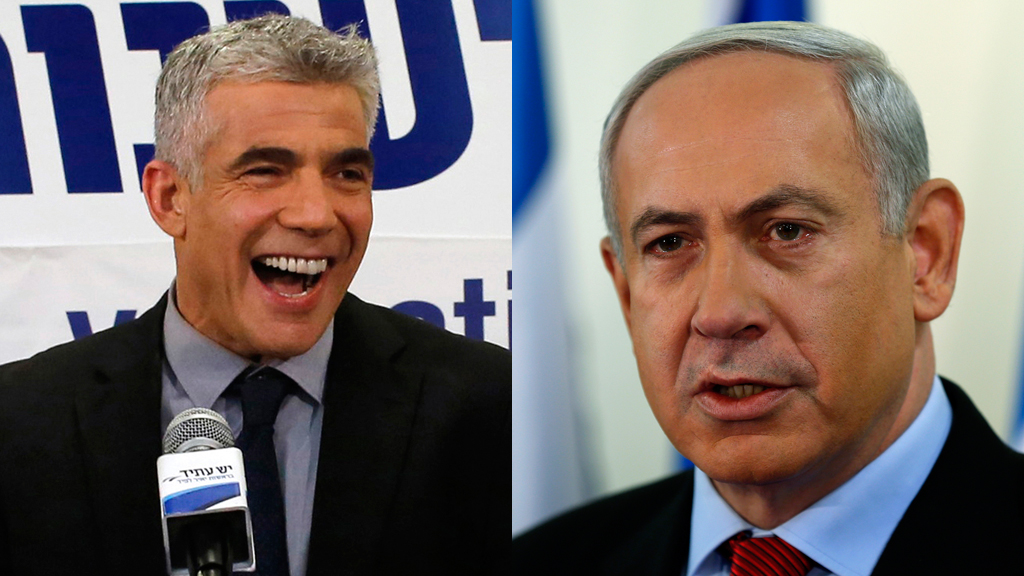Israeli elections: Netanyahu courts former TV anchor
Deadlock in the Israeli elections forces Binyamin Netanyahu to turn for support to a former television presenter who wants to re-open peace talks with the Palestinians.

Centre-left parties did better than expected, while Mr Netanyahu’s right-wing alliance, Likud-Beitenu, lost a quarter of its seats.
Likud-Beitenu is still the largest group in the Knesset, but the Israeli prime minister will not be able to continue governing without a deal with other parties.
One of the surprises of the elections was the success of the new centrist Yesh Atid party, which came second and is led by ex-journalist Yair Lapid (pictured left above).
We must form as wide a coalition as possible. Israeli Prime Minister Binyamin Netanyahu
Mr Lapid is also being courted by the Israeli Labour party as a possible prime minister.
Peace talks
He told supporters he wanted to be part of an alliance of moderates from left and right. He is in favour of the resumption of negotiations with the Palestinians that stalled under Mr Netanyahu’s premiership.
But he has said east Jerusalem, claimed by the Palestinians as a future capital, should remain part of Israel.
Mr Lapid also wants to see the end of exemptions for ulta-orthodox Jews which mean they do not have to serve in the military.
Ofer Shelah, a member of Yesh Atid , said the party would “insist” that peace negotiations were re-opened. But this would place Mr Netanyahu, who said “we must form as wide a coalition as possible”, in a difficult position with his party.
Palestinian President Mahmoud Abbas has said he would only return to talks if Israel freezes Jewish settlement construction in the West Bank and east Jerusalem.
Referring to Mr Lapid, Hanan Ashrawi, a PLO official, said: “You are not going to have a saviour, suddenly producing instant peace.”